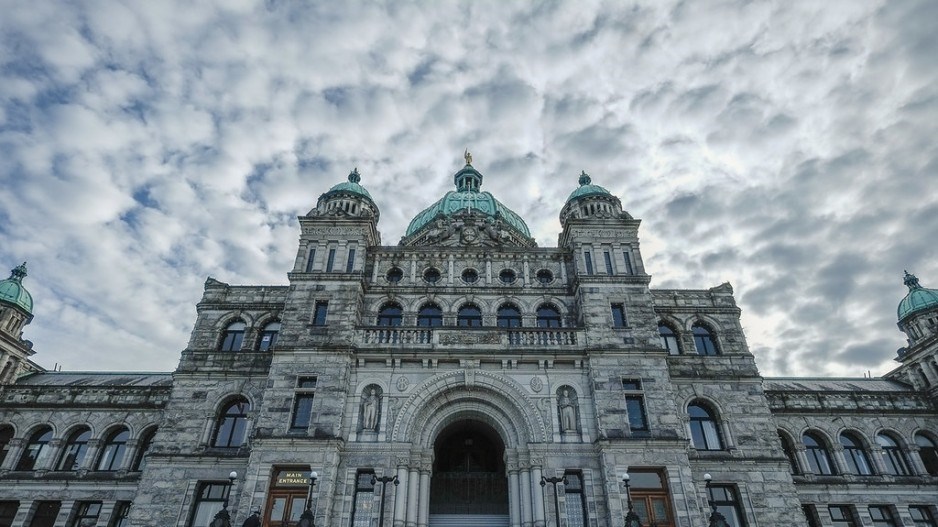According to recent modelling, implementing the NDP government’s signature CleanBC agenda to meet the province’s greenhouse gas (GHG) reduction targets will push economic growth down to the slowest pace on record, substantially dampening overall prosperity by the end of the decade.
Yes, you read that correctly. The provincial government is committed to a mix of policies that its own analysis shows will shrink B.C.’s economy by almost $30 billion by 2030. This finding emerges from economic modelling work on CleanBC recently commissioned by the province.
The NDP’s CleanBC Roadmap to 2030 builds on several earlier reports detailing how the province hopes to slash GHG emissions to 40 per cent below the 2007 level by 2030 – just seven years from now. To date, the modelling done by the province has mostly focused on the trajectory of GHG emissions. But the latest version was expanded to include the impact of CleanBC on economic activity (GDP). In this work, GHG and GDP forecasts were first developed using a reference scenario which only includes climate policies up to July 2017 – when the NDP first assumed office. The projections were then re-run assuming the CleanBC policies adopted since 2017 are in place.
In its public-facing CleanBC Roadmap report, the government highlights the anticipated GHG emission reductions stemming from its policies. Little attention is given to the economic ramifications. The government claims its roadmap initiatives will foster a few thousand new jobs and spur some additional economic activity. However, the roadmap is completely silent on the job losses, reduced business activity, diminished industrial competitiveness and lower level of GDP that surely will result from B.C.’s rapidly increasing carbon tax and the slew of other programs and regulatory actions being taken as part of the government’s climate policy.
The report observes that the province’s plan “will increase the cost of fossil fuels,” and that “[g]overnment will minimize the impacts by continuing the Climate Action Tax Credit and providing increased support to help people and businesses reduce emissions and costs.” But apart from this handful of words, there is no further discussion of CleanBC’s economic consequences in the 66-page document.
Answering questions about the broader economic impacts of CleanBC requires a little digging. Some of the modelling results are reproduced in an Excel file posted on the Ministry of Environment’s website (Provincial Forecast of greenhouse gas emissions - Province of British Columbia (gov.bc.ca). The file includes projections for GHGs and provincial GDP (as well as energy use). It shows results of both the reference scenario and the CleanBC scenario (the latter includes all climate action policies since mid-2017). The bottom line is that CleanBC policies will result in B.C.’s economy being $28.1 billion smaller (in inflation-adjusted terms) in 2030 than would otherwise be the case.
This is a sizable difference. Rather than growing by 20 per cent under the 2017 reference scenario, B.C.’s economy expands by less than 10 per cent between 2020 and 2030 under CleanBC. Most of the slowdown and the related hit to aggregate income occurs in the second half of the decade, when the carbon tax is slated to climb toward $170 per tonne and other emission reduction programs announced by government are due to be implemented. The CleanBC policy mix, according to the government’s modelling, will put the province on a path for the weakest economic growth in its history.
The implications for B.C.’s prosperity are sobering. With the economy barely growing in the second half of the decade, even modest increases in population will produce serial declines in real per-capita income. Using the population forecasts in the 2023 provincial budget, real per-capita GDP looks set to decrease over the rest of the decade under CleanBC. By 2030, this core metric of economic prosperity drops back to where it stood in 2013.
We understand the political and policy focus on addressing climate change. All advanced economy jurisdictions are under pressure to act. The NDP government has committed to delivering dramatic cuts in GHG emissions over a very compressed time frame. As the government’s own modelling confirms, this approach will significantly magnify the economic costs of the CleanBC program. Perhaps a more balanced and realistic suite of targets and policies would lessen the forthcoming economic pain.
Jock Finlayson is the Business Council of British Columbia’s senior adviser; Ken Peacock is the council’s senior vice-president and chief economist.




